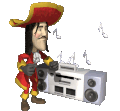Cyrillic can be handy since there are many loan words from English / French / Greek / Latin so you can at least get a vague sense of what a document is about.
askchapo
Ask Hexbear is the place to ask and answer ~~thought-provoking~~ questions.
Rules:
-
Posts must ask a question.
-
If the question asked is serious, answer seriously.
-
Questions where you want to learn more about socialism are allowed, but questions in bad faith are not.
-
Try !feedback@hexbear.net if you're having questions about regarding moderation, site policy, the site itself, development, volunteering or the mod team.
also for using rutracker and stuff 
I learned cyrillic from a single page infographic on leddit many years ago, and learned what the words actually meant by trying to navigate Russian torrent sites as well. Don't ask me how to carry a conversation in Russian but I will instinctively click the "скачать" button.
useful? no, not really. intellectually satisfying? certainly
Death to America
Arabic is a hard script to learn. I'd suggest going for something like Cyrillic or Armenian or Mkhedruli.
Yes. If you are interested embrace that interest! Do things with your brain! I learned Greek as a kid and Cyrillic got a whole lot easier later on because of it.
Well, it isn't an actual language (and thus is very easy to do), but it's been useful to learn Elian script (just an alternate way of writing the alphabet) so I can write random ideas at work without anyone being able to read them... they must never see my stupid notes...
It's fun to learn katakana to read all the silly Engrish words.
I can think of a few 'uses' but overall wouldn't classify it under 'useful'
Marginally. If you want to go from seeing it as "foreign text" to "it makes this sound".
If you get a kick out of being able to identify a word here and there, or to read a map, or maybe even a label, it might be worth it.
If you're curious enough to learn it, it won't stop there. For Arabic, a little bit of good instruction will allow you to parse a little bit of the syntax of a phrase or sentence, the tense or other inflections, and some prepositions.
Yes. It's a precursor to learning the language, and for those that share cognates with, or have loanwords from English you'll be able to recognise some common words
Utility is not a criteria for hobbies.
I guess maybe if you want to learn how to pronounce names and words correctly?
But like, learning the alphabet requires learning at least some of the language.
the only useful one i would think would be something like Shorthand
i think about archaeologists, or somewhat similar expertise with this. or in a more relatable vein, people who know their fave actor/actress/singer/entertainer's fave food, clothing or restaurant.
generally you don't need, to but if you have the passion, definitely go for it.
ياااااص
Super fun! I know Devanagari (Sanskrit, Hindi, et al). I hardly know any words, but I can read it.